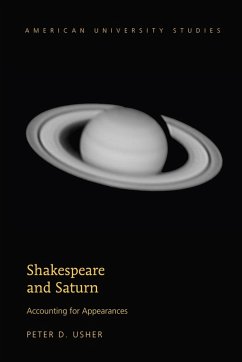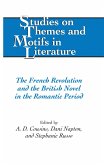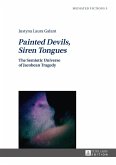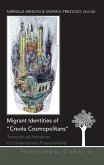In the mid-sixteenth century, Copernicus asserted that the Earth was not the center of the universe as was generally believed, but that the sun lay there instead. The relegation of the Earth to the rank of an orbiting planet meant that humankind lost its privileged position as well, thus prompting re-evaluation of all facets of human existence. This transformation in worldview gathered momentum throughout Shakespeare's writing career, yet his canon appears to lack reference to it. Peter D. Usher has studied
Hamlet and other Shakespearean plays and has uncovered a consistent pattern of reference to phenomena that prove the correctness of the new worldview, including reference to the infinite universe of stars. These data could not have been known without telescopic aid, which indicates that systematic telescopic study of celestial objects began before the generally accepted date of 1610. In
Shakespeare and Saturn, Usher summarizes earlier results and shows that in
All's Well That Ends Well, Shakespeare takes account of the last supernova eruption of 1604 known to have occurred in the Milky Way galaxy. He shows further that in
Much Ado About Nothing and
The Comedy of Errors Shakespeare makes observations concerning Saturn's spectacular ring system that are remarkably accurate.
Dieser Download kann aus rechtlichen Gründen nur mit Rechnungsadresse in A, B, BG, CY, CZ, D, DK, EW, E, FIN, F, GR, HR, H, IRL, I, LT, L, LR, M, NL, PL, P, R, S, SLO, SK ausgeliefert werden.









